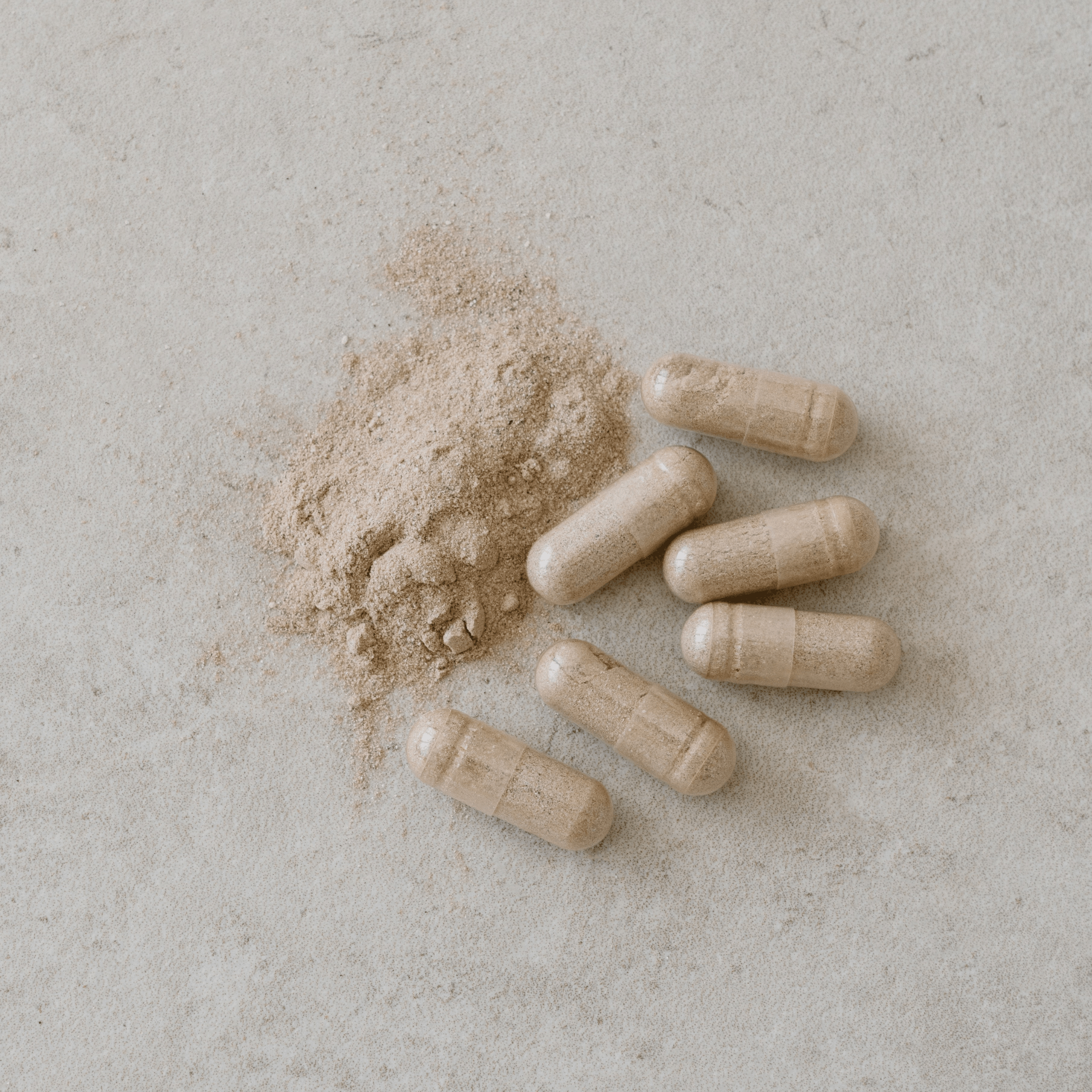
When you're pregnant or trying to conceive, every choice feels more important. What you eat, how much you rest, what you put on your skin, and especially what you put in your body. It all matters.
Prenatal vitamins are meant to support both you and your baby during this critical time. But many mainstream options contain extra ingredients that don’t offer any nutritional benefit. In some cases, they may even raise concerns.
So why are they there? And how can you choose a cleaner option that gives you peace of mind?
What Are Fillers and Why Are They Used?
Supplements often include fillers and additives for manufacturing convenience. Most serve no purpose for your body; they’re added to speed up manufacturing, not support your health. Some are banned in other countries or raise safety concerns. During pregnancy, when your body is already working hard, it makes sense to avoid anything unnecessary.
The Not-So-Helpful Ingredients We Leave Out
A quick look at common prenatal vitamins reveals ingredients like:
-
Titanium Dioxide: A whitening agent banned in Europe because of concerns about possible DNA damage. Still permitted elsewhere, but many moms prefer to avoid it.
-
BHT (Butylated Hydroxytoluene): A preservative that animal studies have linked to possible hormone disruption and tumour growth. Human research is limited, but it raises questions.
-
Maltodextrin: A processed filler that can raise blood sugar and may affect gut bacteria in some individuals.
-
Artificial Colour (Carmine): A colour additive made from crushed insects that can trigger allergic reactions in sensitive individuals.
-
Talc: Used as an anti-caking agent. Some sources of talc have been found to contain trace levels of asbestos.
-
Magnesium Stearate: Used as a flow agent. Generally considered safe, though some studies suggest it may affect gut bacteria or digestion in certain individuals.
Why This Matters for Pregnancy
These ingredients don’t support your health or your baby’s development. They exist to make manufacturing easier, not to nourish your body.
While not every additive is harmful, pregnancy is a time when even small decisions can feel big. Many moms want to reduce their exposure to anything that isn't necessary, especially when clean, effective alternatives are available.
Possible concerns with fillers include:
-
Gut disruption: Certain fillers, like maltodextrin or magnesium stearate, may affect digestion or gut bacteria in sensitive individuals.
-
Hormonal or immune responses: Some preservatives and dyes have been flagged in studies for possible endocrine or allergic effects.
-
Long-term exposure concerns: Even if the short-term risk seems low, some ingredients simply haven’t been studied enough in pregnancy.
Our Zero Fillers Philosophy and How We Compare to Other Prenatals
At Everydae, we believe what you leave out matters as much as what you put in. That is why Mama Expecting is formulated without fillers, artificial dyes, or unnecessary extras.
Every ingredient in our prenatal has a purpose. If it doesn’t support you or your baby, it’s not in there.
This approach isn’t about fear. It’s about transparency, trust, and giving moms confidence in what they're taking. You deserve to know exactly what’s in your supplement... and why.
| Ingredient | What Is It | Why We Skip It |
|---|---|---|
| Titanium Dioxide | Whitening agent | Banned in Europe; concerns about possible DNA damage |
| BHT (Butylated Hydroxytoluene) | Preservative | Animal studies suggest hormone disruption and tumour risks |
| Maltodextrin | Filler | Can raise blood sugar and may affect gut bacteria |
| Artificial Colour (Carmine) | Dye from crushed insects | May trigger allergic reactions |
| Talc | Anti-caking agent | Concerns about possible asbestos contamination |
| Magnesium Stearate | Flow agent | May alter digestion or gut bacteria in sensitive individuals |
How Clean Prenatals Support a Healthier Pregnancy
A cleaner formula can make a noticeable difference in how you feel. Without extra additives, many women experience gentler digestion, fewer side effects, and more peace of mind.
-
Less bloating and nausea
Removing common irritants can help your body tolerate supplements more easily. -
Better absorption
Clean formulas often use more bioavailable forms of nutrients, which your body can actually use. -
Fewer unknowns
When every ingredient is intentional, there’s nothing to second-guess.
Pregnancy is already full of decisions and adjustments. Choosing a clean prenatal can be one simple way to feel more confident in how you're supporting your body and your baby.
For more ways nutrients affect your well-being, read our blog on nutrient deficiencies and anxiety.
What to Look For When Choosing a Prenatal Vitamin
When reading labels or shopping online, here are a few things to consider:
-
Look at the “Other Ingredients” section and watch for anything beyond the capsule itself. If it isn’t a nutrient or the capsule, it's most likely considered a filler. Common additives like titanium dioxide, maltodextrin, or artificial colors are often listed there.
-
Check transparency. Brands should explain why each ingredient is included.
-
Focus on nutrient forms. Look for folate instead of folic acid, and bioavailable minerals for better absorption.
Choosing What Feels Right for You and Your Baby
Every pregnancy is unique, and so is every mom’s approach to supplements. Clean prenatal vitamins are not about perfection. They are about confidence and support during a season when your body is doing incredible work.
If you are curious about a filler-free option, Mama Expecting was created with this philosophy in mind: zero fillers, zero artificial dyes, and only the nutrients that matter most for you and your growing baby.


